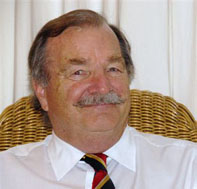It was dawn. There I was, traversing a Zimbabwean swamp (rather intrepidly, even if I say so myself), the water above my boots and the reeds often above my head. I was hoping to flush an African Crake.
I’m a birder you see.
As I have said before, birding is a bit like train-spotting, except that a 600 ton train is easier to spot than a hiding bird. . And birding requires a lot more skill and far greater intrepidness and energy.
In fact it’s nothing like train-spotting and I don’t know why you even mentioned it.
Birds are not just beautiful, they are a mystery. That’s why birding is so absorbing.
[Aside: One of the mysteries, to me, is a typographical one: why do newspapers and other journals use capitals when writing bird names? They’d never write White Rhino or Blue Wildebeest. Yet even House Sparrows and the Penduline Tits, if you’ll pardon me, madam, get capital letters.]
Anyway, the swamp… it was the Monavale Swamp in Harare’s western suburbs, an internationally recognised birding site.
There we saw 40 species of birds, though the crake eluded us. Nevertheless I saw a Senegal Coucal which was a “lifer” for me (a lifer is a species seen for the first time).
Mary, my companion, whose “life list”, at that time, was over 650 birds, way ahead of mine, had seen one before.
We saw many species that people travel across the world to see.
We had booked three nights at each of three famed Zimbabwe birding areas – first around Harare which has an astonishing birdlife. Here we were taken into magnificent Miombo woodlands and forests.
We had flown into Harare and hired a small car and then for the 5-hour drive southeast to the Eastern Highland, a 4X4.
Here we spent three nights at Seldomseen in the mountainous Vumba region bordering Mozambique. It’s a delightful old colonial lodge with terraced gardens and a cathedral-like forest. Three days later we drove 3½-hours north, winding through spectacular scenery to Aberfoyle Lodge in the Honde Valley on Mozambique’s border. The valley is carpeted with tea plantations and deep forests.
These two areas are famous for some of the world’s rarest birds, found nowhere beyond.
We used quite brilliant Shona bird guides at $5 (US) an hour per person. Without their guidance we would have found only a tenth of the 180 species that we eventually found. I notched up an unbelievable 41 lifers and Mary, who’d birded there before, listed 24.
So excited did Seldomseen’s guide, Buluwesi Murambiwa, become that when we tracked down a difficult-to-find Spotted Creeper we’d been following for two hours, he hauled me into position by my collar. Mary, who’d also found a good vantage was pulling me just as vigorously in the opposite direction. I’m going to need a rugby jersey in future.
As both of us are beyond pensionable age we had gone to Zimbabwe with some misgivings regarding our safety. There was no need. Never did we feel insecure. Wherever we went, even in the remotest places, we were met with cheerful greetings and smiles.
Road blocks on trunk roads were manned by trim, smartly dressed policemen and women. They never solicit bribes. They used to. They’d inveigle $10 from passing tourists insisting something was wrong their car or their papers. But just before a tourism convention last year President Mugabe warned that any policeman found soliciting a bribe from a tourist would spend the rest of his life in jail.
They’re quite a contrast to South Africa’s often overweight , bribe-hungry police in their blue upholstery bursting at the seams.
Only once were we stopped. I signed an admission of guilt ($5) for not wearing a seat belt. The policeman’s white shirt was spotless and ironed.
[Footnote: Zimbabwe’s currency is US dollars and South African rands, though very few places accept rands.]
Posted on March 25, 2015 by James Clarke





Leave a comment